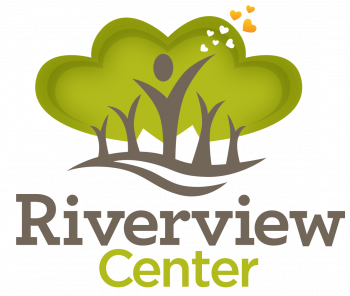Available any time, day or night, 365 days a year, the Crisis Hotline is a confidential way for survivors to contact Riverview Center for help. Whether it is their first time requesting assistance, reaching out for support during a flashback or making a counseling appointment, the Hotline is the best way to get ahold of us.
Community Services
Professional Training
Riverview Center offers professional training in the form of violence prevention presentations to allied professionals in the community. Preventionists routinely work with teachers and school staff, police officers and members of law enforcement teams, first responders and EMTs, social service agencies, and college students in fields such as education, criminal justice and human services. Professionals that could encounter a survivor in their line of work, or employers seeking to make their workplace safe are eligible to receive this free service.
Professional training programs topics include:
- How to handle a disclosure of sexual violence
- How to connect a survivor with resources like Riverview Center
- How sexual violence impacts individuals and communities in the short and long-term
- The necessity of a survivor’s privacy
No matter the audience, professional training promotes empathy towards survivors and teaching the responders ways to assure the survivor they are believed.
Survivors who have someone who believes in them, and subsequently receive professional, high-quality support in a timely manner are less likely to experience the long-term, negative consequences of sexual violence. Each person that meets a survivor will respond in a way that helps or hurts. We are dedicated to educating professionals how to help.
Professional training programs can be tailored to the needs of the agency being served. For example, a disability service provider may receive training on how to recognize signs of sexual abuse in someone who communicates non-verbally. Workplace supervisors may receive training on sexual harassment and how to keep their employees safe. Youth leaders in schools, faith communities, and community organizations may receive training on violence as it relates to the age group they work with.
Ultimately, Riverview Center aims to equip professionals with the education and tools necessary to prevent violence in every facet of the community.
Prevention Services and Training
Riverview Center uses evidence-based programs to teach kids, teens and young adults the importance of redefining the social norms that allow for violence against others. Starting in preschool and continuing through high school and college, students can receive a variety of lessons appropriate for each developmental stage of their life.
School-Age Prevention Training
Riverview Center staff works with teachers directly to ensure programming is relevant to the students and what is occurring in the classrooms and throughout the community for that age group. Staff also works with parents to keep them informed of what their students are learning and encourage them to continue practices they are learning at home. Riverview Center hosts programming throughout the school year as well as summer camps.
Starting in preschool, students learn about appropriate boundaries between themselves and other students, how to react to inappropriate behavior, and more. By starting the conversations early, we can garner a commitment to the prevention of inappropriate and harmful behavior down the line.
In elementary school, students are taught inclusivity, respect for those around them, body safety and boundaries, and how to have empathy for others. Also introduced at this age is the harm of traditional gender roles on individuals.
Middle schoolers are beginning to learn about relationships and how to interact others. This should include an understanding of how to determine if a relationship is healthy and safe, how to be a respectful and caring partner, and what boundaries look like and how to respect them. This keeps the empathy conversation going to help students become loving partners and supportive friends. Students also learn that they deserve to be in a happy and healthy relationship, and that nobody should be able to take that away from them.
With the maturity of high schoolers comes a deeper conversation about what sexual harassment and abusive relationships look like, how to be aware of sexual assault whether they are a survivor or a bystander, and teaching students the skills and tools they need for their current and future relationships.
LGBTQ+ Support Training
In addition to the general high school programming, Riverview Center’s Illinois offices offer support and education for the LGBTQ+ and ally youth through the Northwest Illinois Gender and Sexuality Alliance (NW IL GSA).
Through regular, safe-space meetings led by trained community members, school professionals, Riverview Center employees and student leaders, these groups discuss topics including, but not limited to: bullying, health safety, advocacy, and safe relationships. This group is intended to reduce self-harm, bullying and substance abuse, as well as increase the self-esteem of the young LGBTQ+ communities.
For more information about our school programs, camp programs, or any of our prevention curricula, please contact your local Riverview Center office.
Community Partnerships
As part of our ongoing commitment to the communities we serve, Riverview Center is proud to partner with organizations that help support our mission and the safety and prosperity of the cities we live in.
For example, Riverview Center staff often serve as members of service and social clubs, area boards, and social service coalitions to name a few. We also have a regular presence at community events to represent our agency and the services we provide.
Creating lasting and effective community partnerships is an integral part of preventing violence and connecting more survivors to the support they need.

